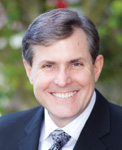How to be anxiety free

First, some sound advice about coffee: Don’t drink 10 cups in one day.
I have a friend who experienced a panic attack in the middle of the night after consuming a large quantity of coffee one day. As he was lying in bed he could hear his heartbeat and noticed that it seemed a bit irregular.
This concerned him and he then realized that his heart was beating faster, and his breathing seemed to be fast and shallow. He felt some tingling sensations in his fingertips and this really caused him some worry. He sat up in bed and wondered, “Could I be having a heart attack?”
His wife awoke and became alarmed as well when he described his symptoms. She quickly called 911 and in a matter of minutes his front lawn was filled with several emergency vehicles.
Apparently there had been an accident on the freeway and a number of rescue services were on the road when the emergency call came in. The entire neighborhood came out to see what was going on. Paramedics took him to a local hospital and numerous tests were run.
Diagnosis: Panic attack triggered by excessive caffeine consumption.
Some of us don’t need 10 cups of coffee to trigger serious anxiety reactions. In fact, anxiety disorders are more common than any other mental disorder, including depression. There are many types of anxiety disorders, including phobias (of many kinds), generalized anxiety, social anxiety, and panic, just to name a few.
My friend was afraid that he was having a heart attack and this caused his body to go into “fight or flight” mode. When he started thinking anticipatory thoughts about the future it really spiraled out of control. These would be thoughts like, “I’m going to die” or “The pain will be excruciating.”
Reality vs. future
The distinguishing factor between fear and anxiety is that fear is an emotional response to a real or perceived imminent threat, while anxiety is anticipation of a future threat. So, if you see a snarling dog blocking your path, you feel fear in that moment, but if you start thinking about how that dog might attack you, then you have moved into the realm of anxiety.
It is the anticipation of fearful events that creates anxiety, not the event itself. And, anticipatory thoughts are limited only by our imagination. “What if…” thinking is the hallmark of worry, and over time in its extreme form can lead to a diagnosis of Generalized Anxiety Disorder.
There’s an initial, often immediate primary appraisal of a threatening situation. Our brain prepares us for that real or perceived threat by dumping stress chemicals into our bloodstream. In some ways these natural substances are like caffeine on steroids. We realize we are experiencing fear when we notice the changes that take place in our bodies. Here’s the kicker: The part of your brain that dumps these chemicals into your bloodstream does not know the difference between real and imagined threats.
There is also a secondary appraisal that takes place when experiencing a threatening situation. Unconsciously we ask ourselves if we have the resources to cope with the threat. For example, the snarling dog may not be so frightening if you see that it’s only a Chihuahua rather than a large pit bull.
Anticipatory imagination fuels our anxiety, but the belief that we will not be able to cope with that future threat causes the anxiety to really spiral out of control. So, if we lived more in the here-and-now and less in the future we would feel less anxious, and if we believe that we can overcome potential threats we would also feel less anxious.
Divine assurance
We can’t stop fearful events from happening—they are a part of life. However, we can do something about the secondary appraisal that involves imagining a fearful future and questioning whether we have the power to cope with those events.
Planning for the future is not a bad thing to do (Luke 14:28), but worrying about the future will not change a thing. In fact, worry has a way of shortening your life rather than protecting it (Luke 12:25).
As followers of Christ we also have the assurance that all things are going to work together for good, even if it means going through painful situations right now (Romans 8:28). With the resources of God at our disposal, we can make it through any trial with minimal anxiety.
Of course, if you drink 10 cups of coffee, all bets are off.
“And the peace of God, which passes all understanding, shall guard your hearts and thoughts in Christ Jesus.” — Philippians 4:7
— by Daniel Jenkins, Ph.D.
Jenkins is a licensed clinical psychologist at Lighthouse Psychological Services in Mission Valley. He is also a professor at Point Loma Nazarene University. Learn more at www.lighthousespy.com





